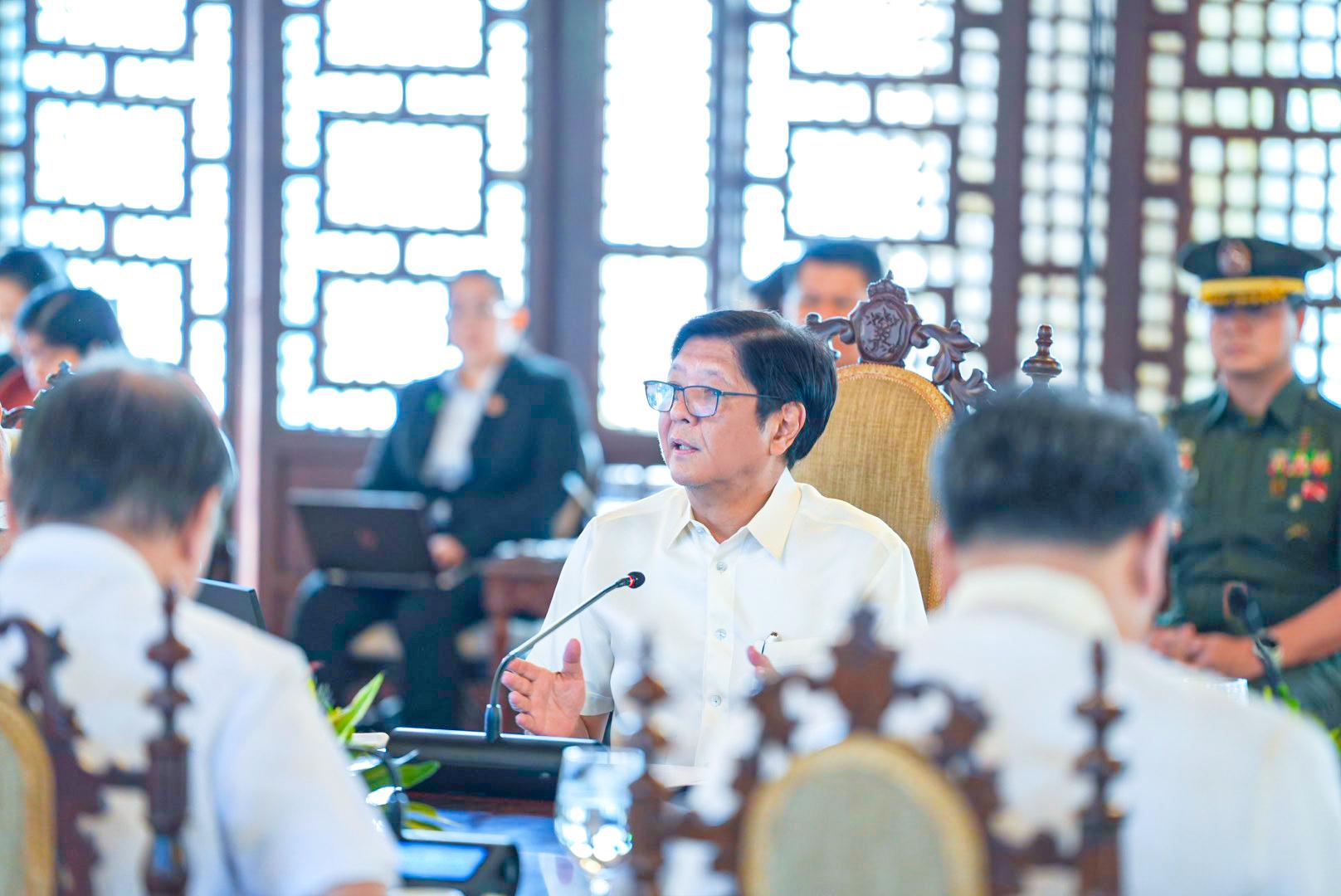PH tells UN body: Marcos strategy 'greatly improved' drug war
At A Glance
- Abalos said the Marcos Administration has committed to enhancing the criminal justice system and crime prevention strategies to foster peace, harmony, and a rules-based order through international cooperation.
- According to Abalos, the Philippines is committed to eradicating human trafficking and human smuggling as they gravely violate human rights and an affront to the dignity of all.
The Philippine government reported that the supply and demand reduction strategy of the Marcos Administration has greatly improved the country's war against illegal drugs, the Presidential Communications Office (PCO) said.

Interior Secretary Benhur Abalos, said this before global leaders attending the 33rd Session of the United Nations (UN) Commission on Crime Prevention and Criminal Justice in Vienna, Austria.
Citing Abalos' speech, the PCO said the supply reduction efforts have seized around $587 million in illegal drugs in the first two years, a 700-percent increase from previous years, and "with minimal loss of life."
Abalos recognized the Buhay Ingatan, Droga'y Iwasan (BIDA) Program which led to a "significant decrease" in drug-related cases as the government promotes holistic crime prevention approaches rooted in community engagement and wellness.
Enhanced justice and crime prevention systems
Abalos said the Marcos Administration has committed to enhancing the criminal justice system and crime prevention strategies to foster peace, harmony, and a rules-based order through international cooperation.
He added that the Philippine government remains committed to multilateralism as expressed in its bid for a non-permanent seat at the UN Security Council for 2027-2028.
"Once elected, we will serve our duty with a deep dedication to a peaceful, just, and equitable international order that is key to the flourishing of each of our nation’s aspirations for our peoples," Abalos said during the session.
To effectively implement those goals, Abalos said the government is enhancing the criminal justice processes, including the introduction of the "reasonable certainty of conviction" standard by the Department of Justice (DOJ) in pursuing criminal cases.
He said the government has also empowered the country’s prosecutors and other law enforcement agencies, particularly their active participation in investigating and building up cases before they are lodged before courts.
Fighting terrorism
Abalos cited the urgent need for a robust international response to address terrorism and violent extremism as he renewed the Philippines' commitment to addressing the said issues.
"We believe that comprehensive and enhanced collaborative approaches and efforts are needed to disrupt terrorist financial networks, recruitment, and movement," he said.
"We call for strengthening information-sharing mechanisms between law enforcement agencies, as well as regional and international cooperation and collaboration in combating terrorism," he added.
Abalos said a united global front is essential to effectively combat transnational crime, corruption, and terrorism in all forms and manifestations.
He stressed that a safer and more just world for all will be created by fostering international cooperation, providing technical assistance, and strengthening legal frameworks.
Eradicating trafficking
According to Abalos, the Philippines is committed to eradicating human trafficking and human smuggling as they gravely violate human rights and an affront to the dignity of all.
He said the Philippines actively implements various programs to prevent trafficking, protect its victims, and prosecute offenders. The country is partnering with different national, regional, and international organizations.
"We have strengthened information sharing exchange on measures to reduce women’s and children’s vulnerability to trafficking in persons, and further strengthened regional and international cooperation in the investigation and prosecution of trafficking cases, including through direct channels of communication and intelligence exchange," he said.
Addressing cyber issues
Meanwhile, Abalos said the Philippines is concerned about the rapid increase in cybercrime, including online scams, data breaches, and cyberattacks. He assured the UN body that the country is addressing this issue without compromising freedom of expression.
"We recognize the importance of a safe and secure cyberspace for our citizens and businesses, and we are committed to combating cybercrime without hindering the freedom of expression or online innovation," he said.
"We call for robust anti-corruption frameworks with strong legal and institutional safeguards by promoting public institutions' transparency and accountability and fostering a culture of integrity within society," he added.